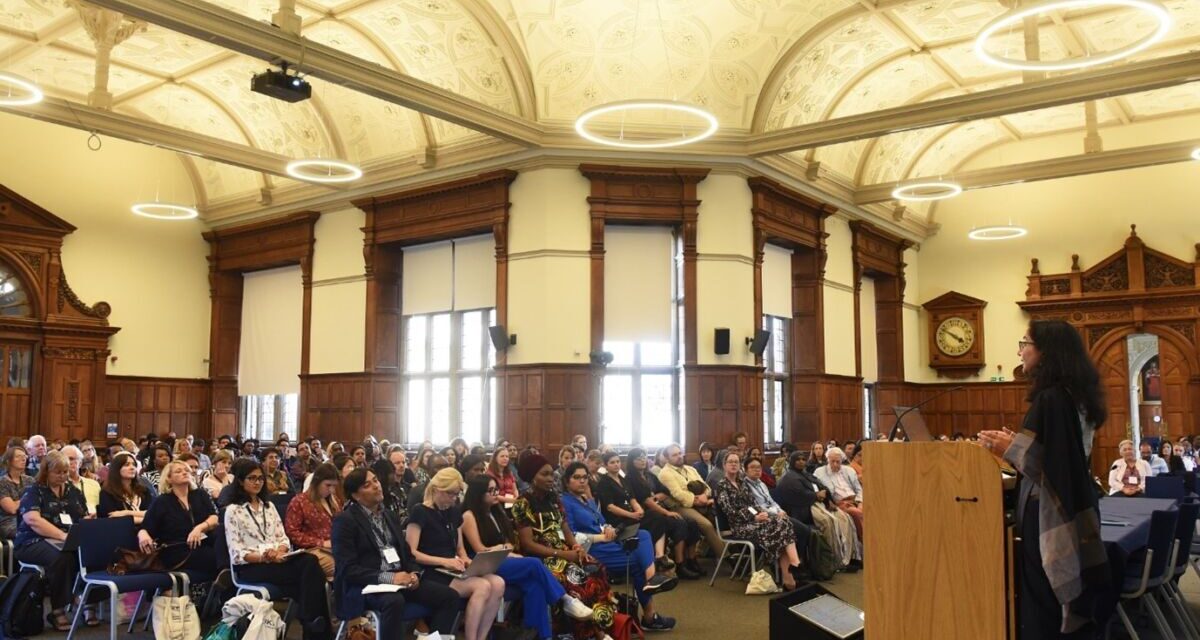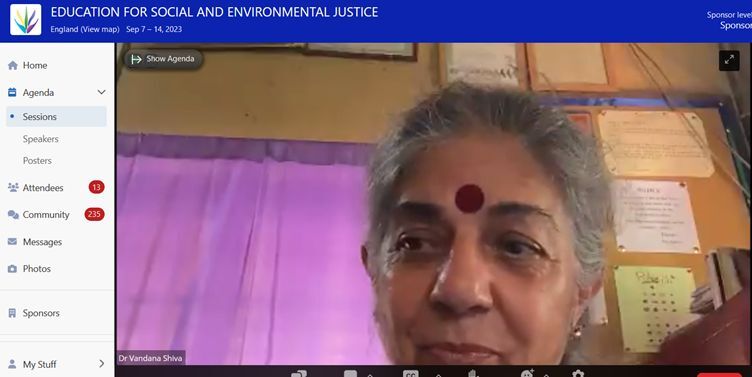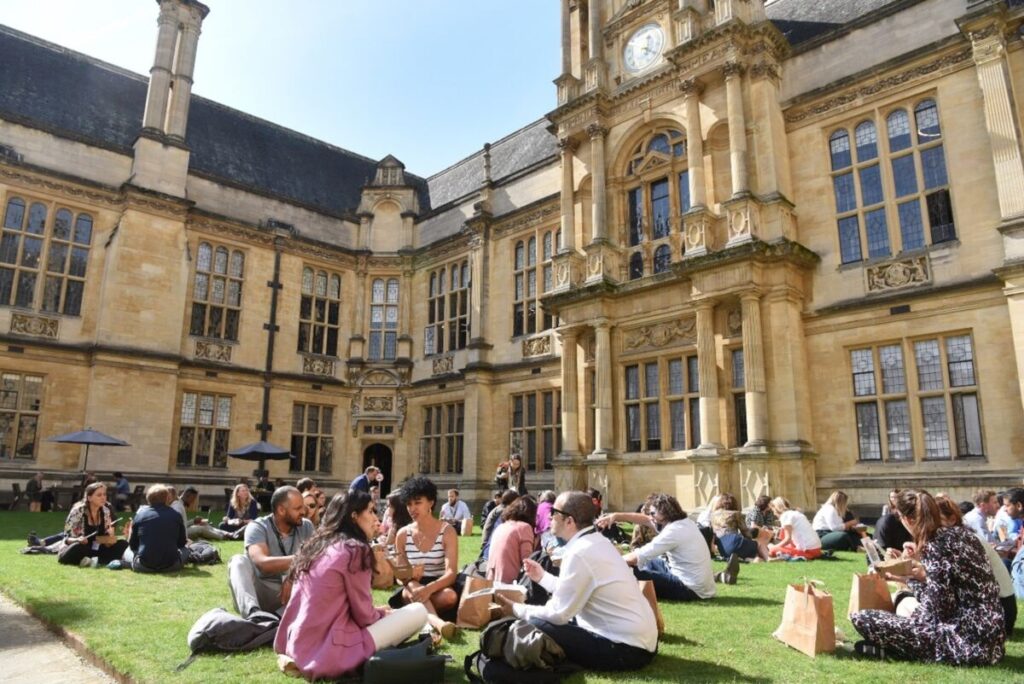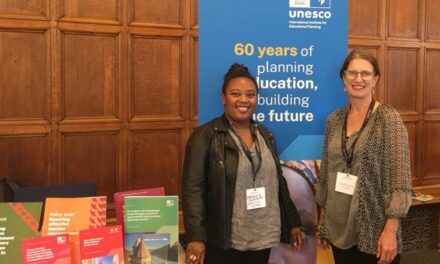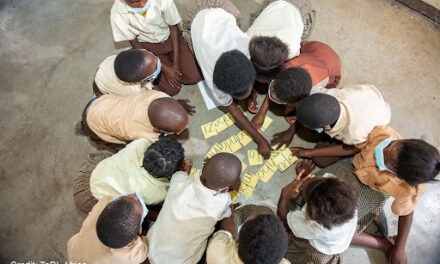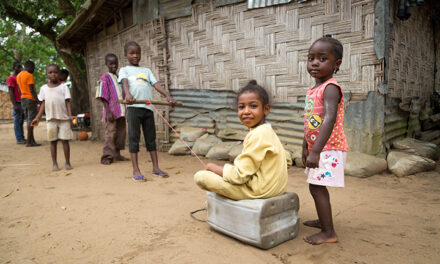This blog was written by the UKFIET 2023 Conference Co-Chairs Aliya Khalid and Amy Parker; and the Conference Chair Yulia Nesterova.
In this blogpost, we would like to share some reflections and challenges (as well as opportunities) of hosting an online and hybrid conference and to share with you some of the insights we collected during the first online-only day of the 2023 UKFIET Conference.
Some thoughts for hybrid conferencing
On 7 September 2023, UKFIET hosted an online day as part of the 2023 UKFIET conference. This was an addition to the 3-day in-person conference in Oxford that had a range of hybrid elements. The decision was made to include an online day to address issues of inclusion, such as prohibitive costs of UK visas and travel to the UK, as well as concerns our delegates have around the impact on the environment, caring responsibilities, and others. Incorporating an online option was also a popular request shared by the conference delegates in 2021 when we couldn’t meet in person due to the COVID-19 pandemic.
This was an opportunity for the team to experiment with an online plus hybrid model of conferencing to see how we can become more inclusive, accommodating, and sustainable as a conference. Intellectually, as noted in our initial blog, the conference organisation was a challenge for the conference chairs and convenors to deconstruct our own thinking about knowledge and knowledge communication practices, and move towards diverse expressions of knowledges in the spirit of inclusion. Administratively, this meant that we needed to think of ways to make the conference as widely accessible and engaging as possible.
UKFIET attracts a diverse body of academics, practitioners, donors and policymakers from across the world to its events. UKFIET feels answerable to all of its members for the knowledge hegemonies the conference may reproduce, as well as the colonial legacies of the venue in Oxford where the conference takes place. This has been an ongoing strand of discussion within the UKFIET organising bodies and holds an important place in the way UKFIET’s future is envisioned.
As a conference committee, we were also deeply aware of these issues. We saw our own role as one which could in some way further open up the intellectual space for diverse knowledges, ways of knowing and learning, and analytical frameworks (especially indigenous and place-based). We took the decision to have an online only day in addition to a hybrid conference so that people who wanted to attend but would find the cost or travel difficult could join us online. We are acutely aware that it does not dilute the concerns raised by many over the years, but this was a first step in an effort to make the event accessible to more than just the in-person attendees. Needless to say, we welcome delegates to share with us different ways we can make it more accessible and inclusive, including through the post-conference survey.
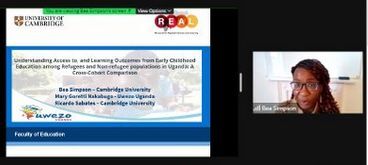 A hybrid option came with technological, financial, and administrative challenges. Our wonderful conference manager, Sarah Jeffery, had to work simultaneously on two events (online and hybrid). Hybrid sessions require additional equipment, technical and facilitation staff and software, so whilst a more accessible option location-wise, the financial cost and space requirements increase significantly. As the online day drew nearer, there were multiple last-minute requests from delegates who needed to switch to present their papers online instead of in-person due to a range of different issues. In the end, we received many more requests for online presentations than we had anticipated. Although we do not have the results from the survey for conference attendees yet, we are pleased that there was an online option which allowed many presenters to contribute their knowledge to the conference.
A hybrid option came with technological, financial, and administrative challenges. Our wonderful conference manager, Sarah Jeffery, had to work simultaneously on two events (online and hybrid). Hybrid sessions require additional equipment, technical and facilitation staff and software, so whilst a more accessible option location-wise, the financial cost and space requirements increase significantly. As the online day drew nearer, there were multiple last-minute requests from delegates who needed to switch to present their papers online instead of in-person due to a range of different issues. In the end, we received many more requests for online presentations than we had anticipated. Although we do not have the results from the survey for conference attendees yet, we are pleased that there was an online option which allowed many presenters to contribute their knowledge to the conference.
Scholarship and lessons from the day of the online conference
The day of the conference was lively and buzzing. We created six Jamboards for each sub-theme for delegates to scribble their thoughts and insights about the sessions they attended. The Whova app that was used for the conference this year allowed the delegates to interact with each other and create a sense of community online.
We were very honoured to have Dr Vandana Shiva as the keynote speaker on the online day. In total, 137 people attended the keynote she gave.
It was a very powerful and inspiring opening keynote emphasising a number of critical contemporary issues:
- the importance of overcoming epistemological apartheid and anthropocentrism;
- working collaboratively together;
- listening to each other and learning from each other; and
- becoming gardeners of humanity and of the soul along with being guardians of the environment.
As Dr Shiva aptly called it, it is ‘the law of sharing and the law of return’. We need to understand others we live with – humans and the natural world – and then think of receiving and giving back. This is the core theme of the conference – how do we envision ourselves in this new world; how do we think of ourselves in terms of ‘relational selves’ as Dewandre (2019) put it, who we consider as the knower, and how do we make sense of knowing.
This element of co-relationship and knowledge was highlighted in various sessions:
The place of histories, including traumatic histories, and reparations: An understanding that any conception of an equitable and just future needs to be mindful of the histories of oppression. There were discussions to ensure that education is open to these conversations and structural and qualitative changes, whether it’s through how and what we teach, how we do research, how we work with each other, and how we engage with those who may feel reluctant to join the process.
Organic changes in communities: including from the perspective of epistemic justice: For example, how perspectives change and how these changes matter – whether it is complex parental perspectives on education or young people’s understanding of sexuality or their place in the world.
Another example is the need to develop holistic views of education, learning, and skills – what is knowledge? whose knowledge matters? how and where do we learn ‘knowledge’? how do we accept knowledge from afar? and so on.
Creative possibilities of intra – and inter- personal conflict, engaging with others, and sharing: things like self-reflection, engaging but not imposing, having critical conversations with and learning from others, learning from shared experience, and examining the histories and power relations that enable oppression of knowledge.
Key takeaways
Importantly, the online day provided the fuel for reflexion, leading to the hybrid/ in-person days. The learnings from the day could be encapsulated into the question that we posed to the delegates to ponder on for the in-person days:
How do we envision education as a tool for social and environmental justice while recognising ourselves and knowledge as relational and dependent on others?
We hope that the online day, despite some technological issues, will have left attendees and presenters with a sense of recognition, inspiration and fulfilment. The day was enriched by the various knowledges that people contributed from across the world but also from the insightful questions, comments and discussions that ensued during and after the sessions.
As we start looking forward to UKFIET 2025 (keep an eye out in 2024 for calls for volunteers to chair, deputy chair and co-convene the next conference!), we will carefully look at all the feedback coming in from the conference as a whole. Online and hybrid options definitely open up the space but do come with multiple additional costs and technical difficulties– equipment, technicians, interactive platform, more ‘staff’ in general – and we are mindful that the conference fee can be prohibitive and there is a need not to increase this too much.

